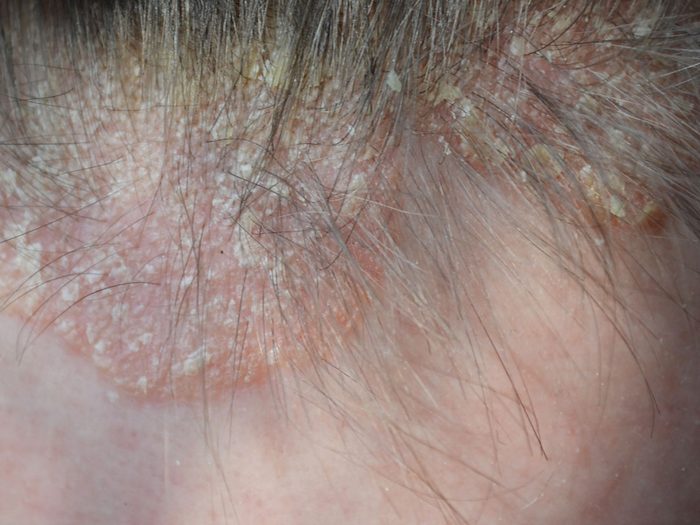
Scalp psoriasis is common
Psoriasis is a common chronic skin condition caused by an overactive immune system. It’s characterized by skin flaking and inflammation, along with thick, white, silvery, or red patches of skin. And over 60 percent of all people with psoriasis will develop some scaling on their scalp, according to the National Psoriasis Foundation (NPF). Scalp psoriasis runs the gamut from mild to severe, and can extend beyond the hairline onto the forehead, the back of the neck, and around your ears. While it’s caused by an autoimmune problem, eating certain foods can make psoriasis worse.
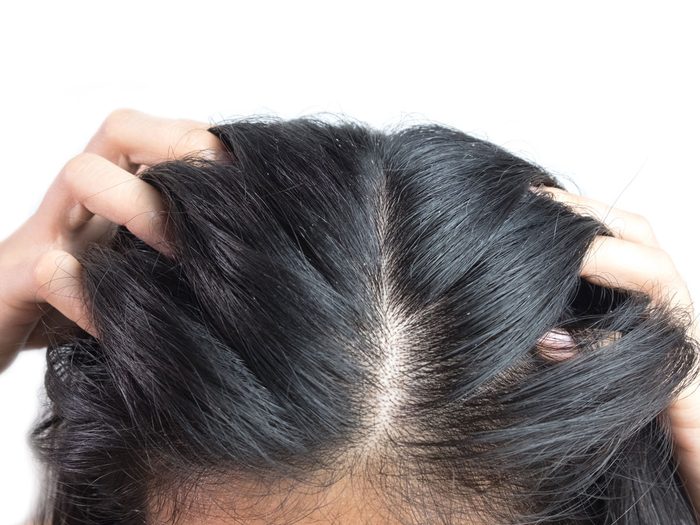
Is it actually psoriasis?
There are many reasons that your scalp may itch, and just one of them is scalp psoriasis. This isn’t something you should try to diagnose or treat yourself, however, so if you have any of the following symptoms, see a dermatologist right away, says Harold Farber, MD, a dermatologist in Philadelphia, PA.
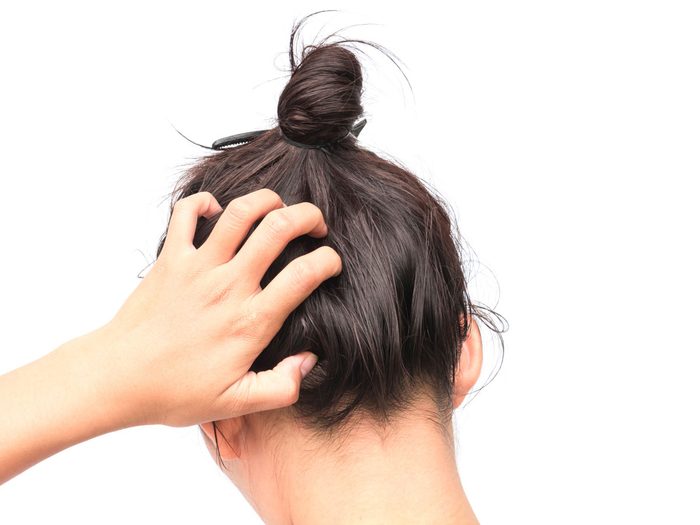
Scalp psoriasis itches… a lot
Itching is one of the most common and vexing symptoms of scalp psoriasis, Dr. Farber says, adding that psoriasis on the scalp is the itchiest kind. But resist that urge to itch it! When you scratch the itch it leads to inflammation, which can make the scalp psoriasis spread, he says. Making matters even more difficult, stress tends to travel with psoriasis and many of us cope with stress by scratching. You can use an over-the-counter anti-itch product to help curb the itch, but be careful when you apply these products to inflamed scales, as they can burn or sting, he explains. Other anti-itch treatment options can include topical steroids and oral antihistamines.
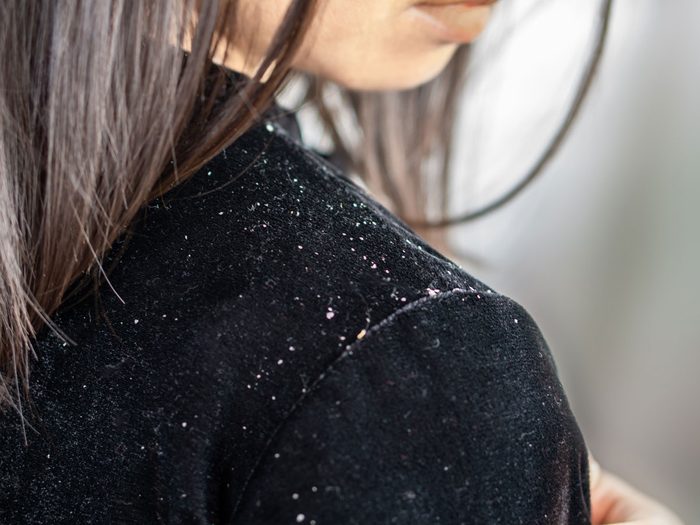
Scalp psoriasis causes flakes
Yes, flakes can be embarrassing and a dead giveaway of your scalp condition, but while the flaking may resemble dandruff, psoriasis is not one of the sneaky causes of dandruff. Treating the psoriasis is the best thing you can do to get rid of the flakes, but in the meantime, you can wear light-coloured clothing to help hide the flakes, says Jerry Bagel, MD, a dermatologist in East Windsor, NJ, and a board member at the NPF.
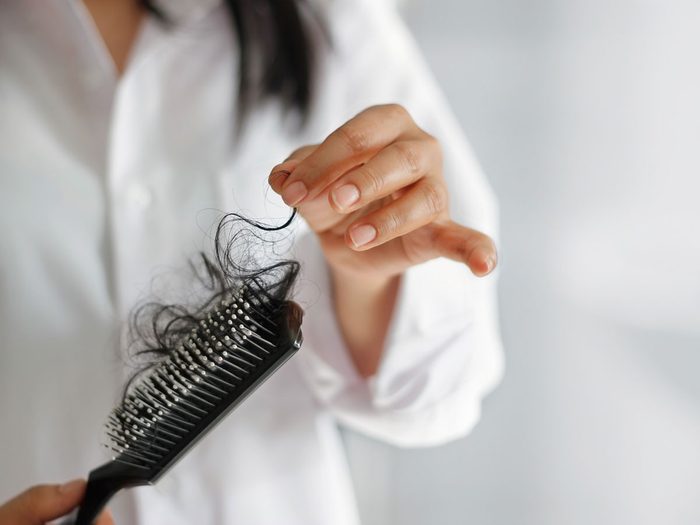
Scalp psoriasis can cause temporary hair loss
Fortunately, hair loss from psoriasis isn’t all that common, but it does occur, says Dr. Bagel. “Some people may lose clumps of hair, but this hair does grow back in about a month with adequate scalp psoriasis treatment,” he says. “The hair loss may be from scratching and the inflammation of the disease.”
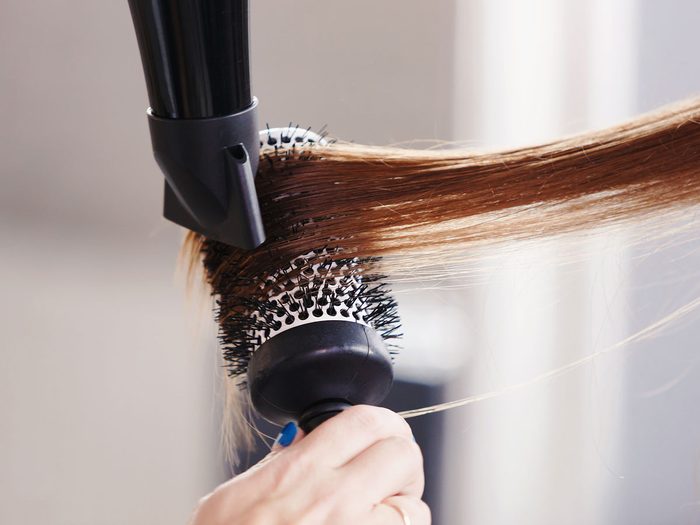
Haircare matters
Anything that stresses your scalp, from blow-drying to aggressive combing, can aggravate your psoriasis, Dr. Bagel says. “If you blow-dry your hair, make sure you don’t use the hottest setting and gently comb just your hair, not your scalp,” he says. “Don’t pull at your hair, which tugs at skin and can be a source of trauma, causing psoriasis to worsen or spread.” Always tell your hairstylist that you have scalp psoriasis and let him or her know if you are sensitive to high heats, pulling, or rough scalp massages, the NPF suggests. In addition, make sure to avoid these everyday mistakes that are aging your hair.

Shampoo can help
There are a host of over-the-counter and prescription shampoos designed to help treat scalp psoriasis, Dr. Farber says. When you have psoriasis, your skin grows at an abnormally fast rate, resulting in the buildup of psoriasis lesions or patches. Using a tar, zinc, or salicylic acid-based shampoo can help slow skin growth and reduce inflammation, itching, and scaling, he says. When shampooing your hair, don’t rub or scrub as that can make the condition worse.

Over-the-counter treatments can be very helpful
The good news is that there are a lot of effective treatments for psoriasis. The bad news? “Unfortunately a lot of the topical treatments are thick, gooey ointments that need to be rubbed on the scalp, and this can be a non-starter for some,” Dr. Farber says. He recommends massaging the lotion or foam into the scalp at night and sleeping in a shower cap. At first, you’ll need to use the treatment daily, but once the scalp psoriasis is under control you can decrease frequency to every other day or twice a week, Dr. Bagel adds. If these don’t do the trick, your dermatologist may prescribe Dovonex (a form of vitamin D that slows skin cell growth and removes scales), Taclonex (vitamin D-steroid combo), Tazorac (a topical retinoid that slows skin cell growth) or Anthralin, which reduces the rapid growth of skin cells.
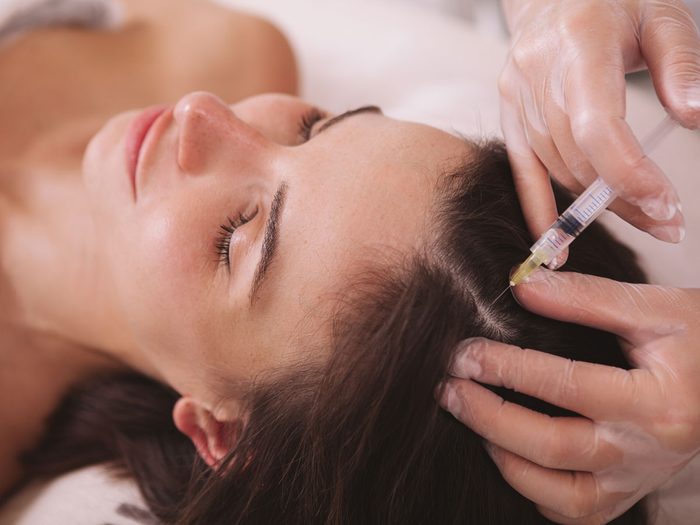
There are options beyond topical ointments
Topical products, whether over-the-counter or prescription, are usually the first line of defense, but if they don’t work, know you still have options, Dr. Farber says. Excimer laser therapy can be really effective. It works by directing UVB light to the psoriasis plaques where it helps reduce inflammation and scaling, he explains. Another option is to get low-dose steroids injected into the lesions, he adds. It also helps to add these foods to your diet for healthier hair.
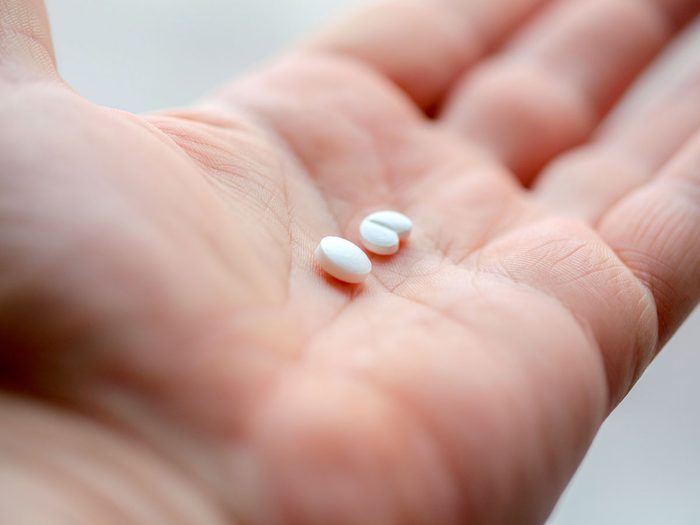
You may need a whole-body treatment
Autoimmune disorders like psoriasis affect the whole body, so some people may need a systemic treatment that works on the immune system directly, Dr. Bagel says. Powerful biologic drugs that aim to cool the inflammation associated with a host of diseases may be effective for severe scalp psoriasis, he says. He conducted two studies looking at the use of biologics—Enbrel (etanercept) and Cosentyx (secukinumab)—for the treatment of scalp psoriasis. Both showed impressive results in minimizing itch, bleeding, and sleep disturbances related to symptoms, he reports. However, these drugs do have side effects (including an increased risk of infection) so talk to your doctor about which treatment plan is best for you.
Medically reviewed by Jessica Wu, MD.
Next, find out which hair mistakes are giving you split ends.
